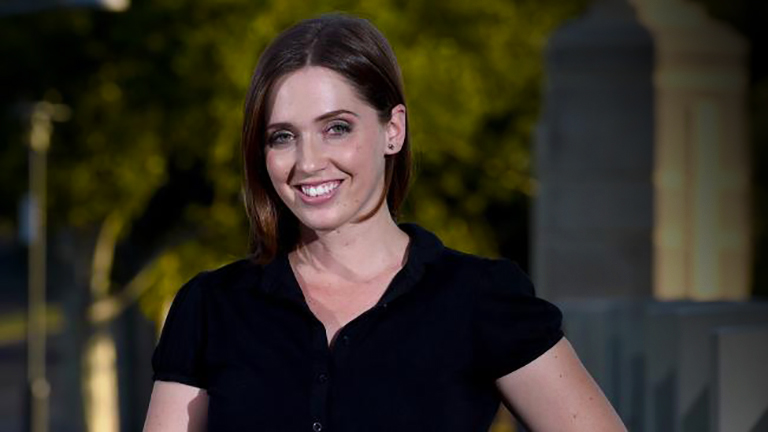Libby Hopwood remembers nothing of a fateful race fall in 2014 that caused a career-ending concussion.

The 30-year-old’s riding dreams were shattered after failing several neuro-psychological tests.
She continues to suffer balance issues, fatigue and spatial difficulties. To overcome memory lapses, Libby has developed strategies such as taking a photo of where her car is parked.
Now a TV commentator, she is intent on raising awareness about concussion. “People don’t seem to appreciate how serious it is,” she says. “Since my accident I’ve had so many people come up to me and say ‘you’re just concussed, you should be fine’. They can’t understand why I can’t go back to racing, so there is a stigma surrounding concussion in Australia.”
Studies being undertaken at HMRI by leading neuropsychologist Dr Andrew Gardner aim to prevent possible long-term ramifications of concussion, including dementia, depression and neurological degeneration. As co-director of the John Hunter Hospital Sports Concussion Clinic, he is exploring new digital technology for measuring cognition and agility as a high-tech alternative to current pencil-and-paper tests.
“We test functions like memory, concentration, reaction time and problem-solving then look for discrepancies between the athlete’s pre-season and post-concussion scores,” Dr Gardner says. “If we can find more sensitive tests it will make it safer in the case where someone says they’ve recovered but we’re noticing cognitive issues, or there have been some accumulative concussions.”
Along with rugby league and union players, Dr Gardner assists basketball players, jockeys, soccer players and netballers, along with BMX and skateboard riders.
“The clinic is important to our research because we don’t just manage the patients from a clinical perspective, we also record the data for our ongoing studies,” Dr Gardner adds. “This gives us a strong foundation to build on so, in coming years, we'll be a world leader in this field.”
You can help make life better for young people like Libby. Click here to donate today.